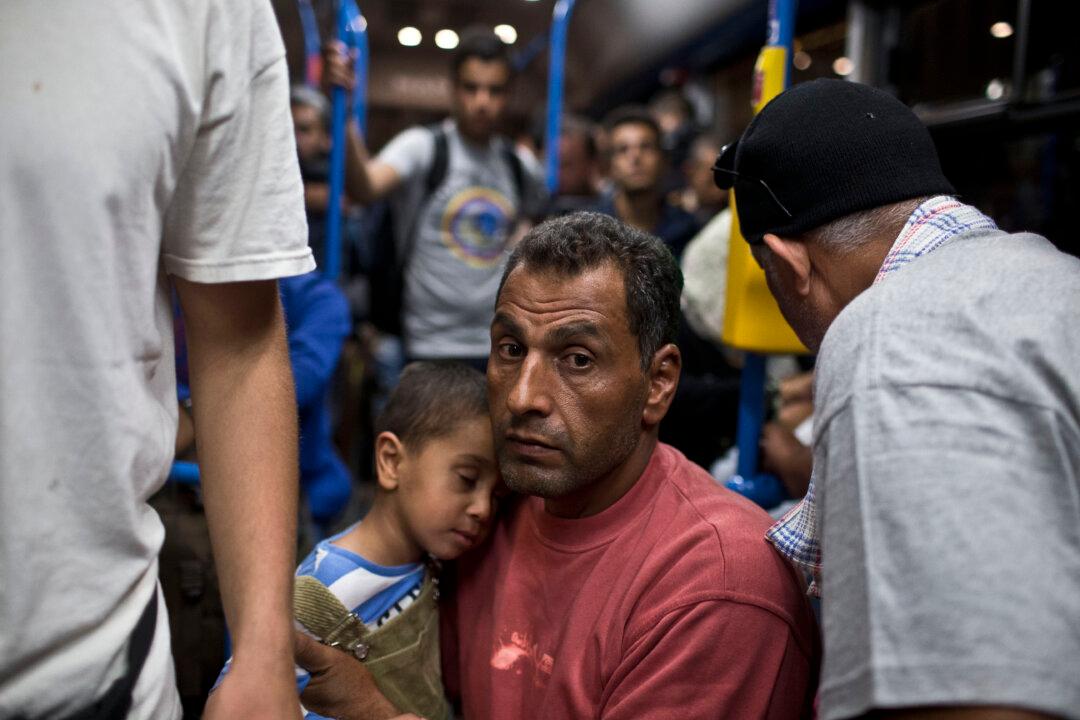BERLIN—German Chancellor Angela Merkel, reflecting on “a moving, in some parts breathtaking weekend behind us,” said Monday that all EU countries could help to accommodate the human tide from the Middle East and Africa.
French President Francois Hollande announced that his country would welcome 24,000 refugees, and that he and Merkel had agreed on a mechanism to spread the migrant load across Europe.
But Hungary’s prime minister, Viktor Orban, said he wasn’t prepared to pitch in and questioned how any EU quota system for migrants could work.
Even as calm returned Monday to the main border point between Austria and Hungary after more than 14,000 people used it over the weekend to enter Austria, Hungary’s leader hit back at EU counterparts who blamed his country for the chaos.
Merkel told reporters in Berlin that Germany will ensure that those who need protection receive it, but that those who stand no chance of getting asylum will have to return to their homes swiftly. Germany is preparing to receive by far the largest number of immigrants, but Merkel called for help from EU partners.
“Germany is a country willing to take people in, but refugees can be received in all countries of the European Union in such a way that they can find refuge from civil war and from persecution,” she said.
Orban mocked the European Union’s efforts to distribute migrants through a quota system and comments by some EU leaders that cast Hungary as the bloc’s “black sheep.”
Any EU migrant quota among the bloc’s 28 countries, makes no sense in a system where the free movement of people would make it impossible to enforce, he said.
Austria’s Chancellor Werner and other EU leaders have blamed Orban for the chaos they say left Austria and Germany no choice but to essentially open their borders for thousands of migrants and refugees who complained of neglect and human rights violations in Hungary.
Most of those crossing into Austria over the weekend proceeded by train to Germany. Austrian officials said only about 90 people asked for asylum in Austria.
In a late-night meeting lasting until early Monday in Berlin, the Germany government agreed to spend 6 billion euros ($6.6 billion) next year to support the hundreds of thousands of new arrivals. At the same time, it also agreed to introduce legal measures making it easier to deport-asylum seekers from countries considered “secure states” like Montenegro, Kosovo and Albania. Asylum-seekers will also get less cash in the future and more non-cash benefits.





